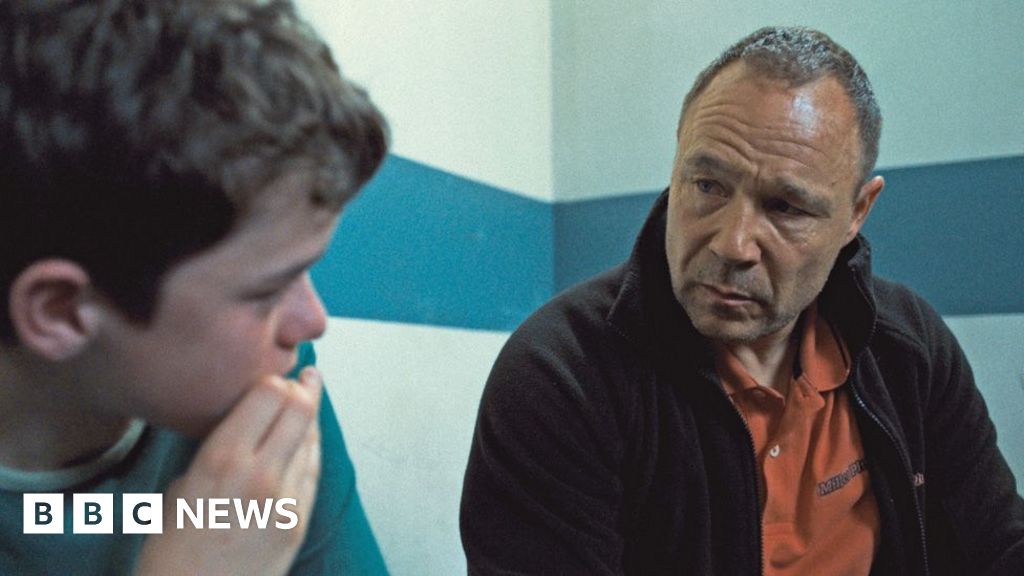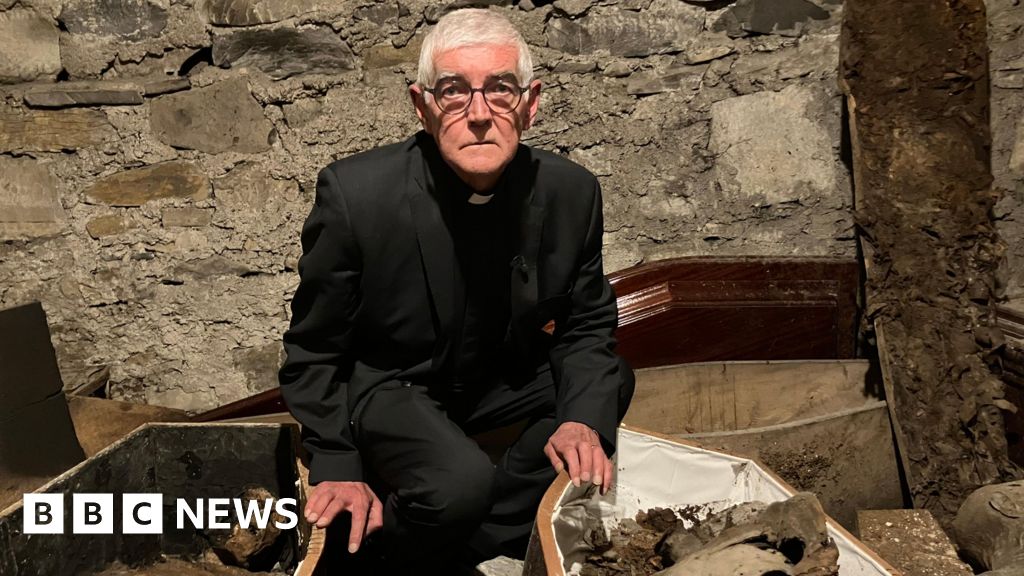ARTICLE AD BOX
By Steven McIntosh
Entertainment reporter
Strictly Come Dancing is welcoming its first ever deaf contestant this year - EastEnders star Rose Ayling-Ellis.
The 26-year-old has played Frankie Lewis, the daughter of Mick Carter (Danny Dyer), in the BBC One soap since May 2020.
Her casting on Strictly has understandably led some viewers to wonder how a hearing-impaired contestant will be able to take part in a show that depends on being able to listen to the live band and dance in time to a beat.
But Ayling-Ellis hopes this will be the perfect opportunity to educate others on how deaf people experience music, and challenge assumptions.
"A lot of people think that deaf people can't hear the music, enjoy the music, and enjoy dancing, so I thought it would be a good platform for me to break that stereotype," she explains.
'Common misconception'
Ayling-Ellis will be coupled up with her professional partner on the Strictly 2021 launch show, which airs on BBC One this Saturday (18 September).
The show will also give viewers their first glimpse at how this year's celebrities, including Dan Walker, Robert Webb and Nina Wadia, might fare on the dancefloor this series.
The show's casting of Ayling-Ellis was applauded for being inclusive, but some viewers were curious about how it would work in practice.
The actress tells BBC News: "It is a common misconception that deaf people can't enjoy music.
"I have a hearing aid, so I pick up some of the music and I can hear the beat. I can hear someone singing, but I can't identify exact words. I also feel the vibrations."
In the case of Strictly, vibrations from the live band led by Dave Arch can be felt through the large dancefloor at the show's Elstree studios.
The EastEnders star adds she will be able to use her professional partner for guidance to stay in time with the rhythm.
"I will be focusing on reading my partner's body language plus counting in my head, which will help me with timing," she says. "So for me it's a combination of everything."
"However," she points out, "not all deaf people are the same, every deaf person will have their own unique experience with music. I do love music and I can't wait to be taught how to dance at a professional level for Strictly!"
Sarah James, the executive producer of Strictly, says the production staff have been liaising with the actress about what her practical and logistical needs will be on the show.
"Already, the team and I have learned a lot from Rose," says James. "She's an amazing person, she is also very honest about what she needs and what we need to adapt, so it's been an ongoing conversation.
"All the team are doing deaf awareness training, which has been brilliant, and we're learning some sign language, and that's been brilliant as well."
Ayling-Ellis's debut on Strictly comes just weeks after screenwriter Jack Thorne told the Edinburgh TV Festival that the industry must do more to support and encourage disabled people.
James notes: "Obviously Rose will need an interpreter with her at all times, so she'll always have an interpreter with her in training. And then in the show you may see an interpreter with her on camera. She'll obviously need someone to interpret the judges' comments and her chat with Claudia [Winkleman].
"But other than that I know that Rose is really looking forward to the show, and I can't wait to see what she does."
While some viewers might feel embarrassed or awkward about asking questions around issues like this, there are many deaf people who have made efforts in recent years to increase understanding and break down any stigma.
In an article for British Deaf News, published last year, a writer with the nickname Deafie Blogger explained: "With music, I can hear it whilst wearing my hearing aids, but I need a little increase in volume and lyrics to understand what's being said/to know what song is playing.
"It's the same concept with lip-reading; without lyrics, I know there is sound, but I can't pick out what is being sung."
She added that most deaf people can feel the vibrations of music through their body - particularly if standing near a speaker or, if the music is loud enough, through the floor.
Deaf people, she explained, are better able to hear louder music particularly when using hearing aids or listening through headphones, but how well certain artists and songs can be heard partially depends on factors within the music.
She noted: "I struggle to hear high-pitched songs, for example Sam Smith, Dua Lipa, Taylor Swift - mostly female singers I find it hard to listen to. I love low-pitched tunes like Adele, Olly Murs, Ed Sheeran, quite often male/boy band singers."
Asked during a webinar what the response from the deaf community has been to her involvement in Strictly, Ayling-Ellis says: "They are very excited. But it will also be interesting to see the reaction from a hearing audience.
"And I just hope a lot of good will come out of it, that will improve deaf people's experience. They [the deaf community] will hope that a lot of people's attitudes will change, and that deaf people get better experience, get more jobs, get more involved in the industry, and it becomes more inclusive."
She concludes: "I feel like I have a purpose, because I'm deaf, and to be the first deaf person on Strictly, I feel like it's a good chance to break the stereotype of what deaf people can and can't do."
Strictly Come Dancing begins on BBC One on Saturday 18 September.

 3 years ago
44
3 years ago
44








 English (US) ·
English (US) ·